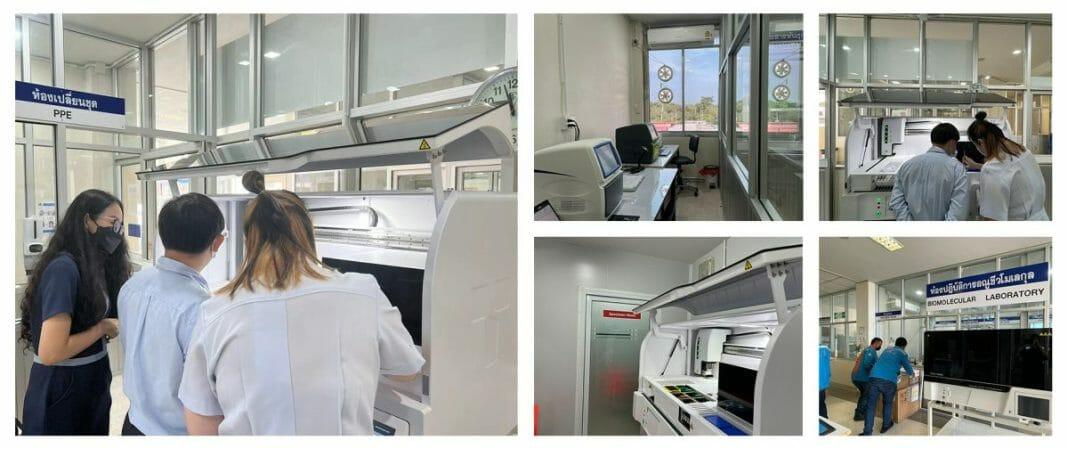Tianlong, an innovative high-tech company specializing in molecular diagnostic products in China, has partnered with public hospitals in northern Thailand to build up detection measures for hepatitis C (HCV) and hepatitis B (HBV), and for the early diagnosis and treatment of the viruses. Globally, more than 350 million people are living with viral hepatitis, and 9 in ten people living with hepatitis are unaware of their diagnosis. Tianlong’s HCV&HBV detection solution can help reduce the transmission of the disease by enabling early diagnosis and proper treatment.
Since October 2022, Tianlong’s HCV&HBV detection solution has been successfully installed in public hospitals in Thailand. The company has reached a 7-year agreement with local hospitals, and its solution will be seen in more local hospitals in the future. Tianlong’s HCV&HBV reagents, compatible with its nucleic acid extractor PANA9600S and PCR system Gentier 96, provide a rapid test with high sensitivity, which has received great praise from high-end users.
“Tianlong can give timely responses both online and offline when we need technical support. We have great confidence in Tianlong’s products, and we would welcome more cooperation in the future,” said a local hospital representative in Thailand.
Tianlong’s STIs solutions will also be applied in Thailand soon to help prevent and control sexually transmitted infections (STIs).
Tianlong is committed to expanding its presence in Thailand and working closely with local partners to provide excellent solutions and services for its customers. The company believes that its molecular diagnostic solutions for hepatitis and other diseases will become increasingly popular in the local market, helping to improve the health and well-being of local people.
